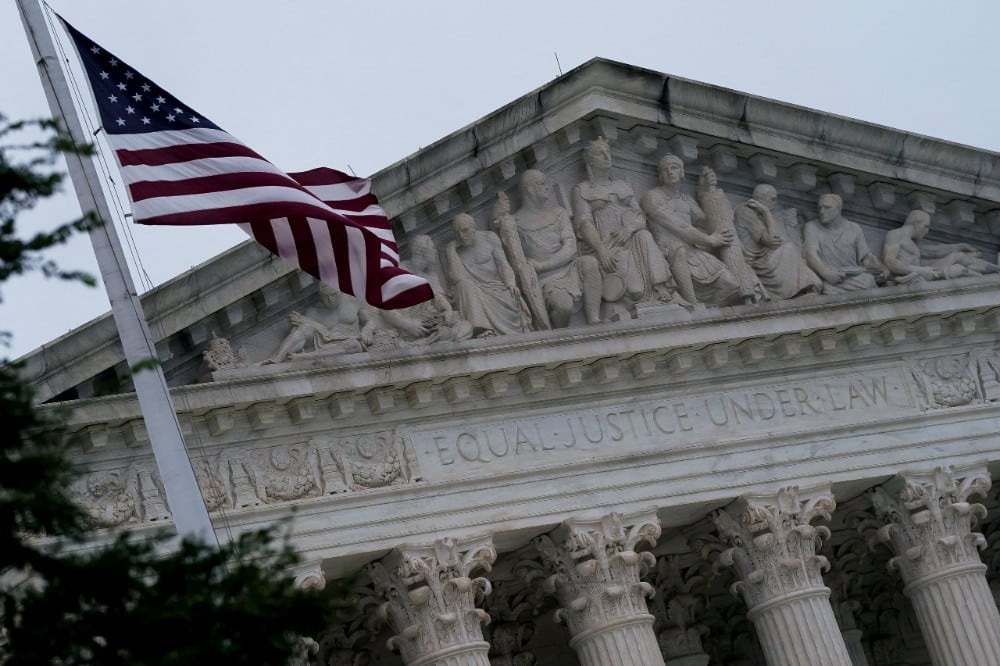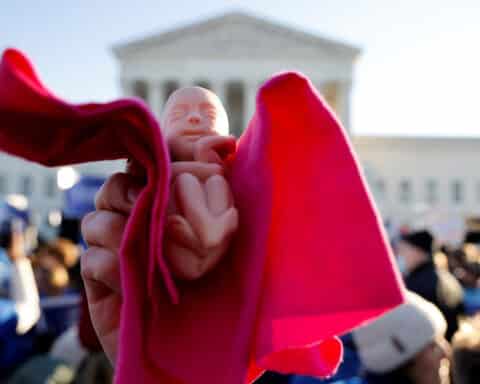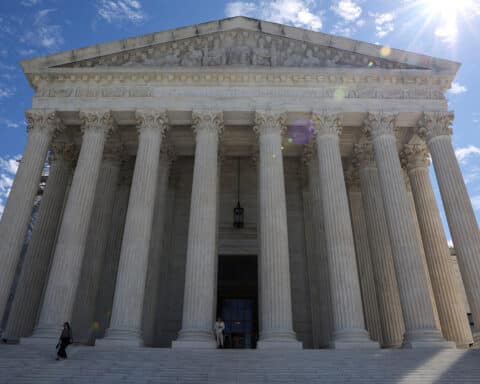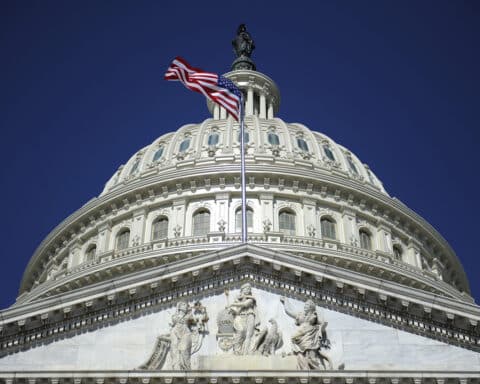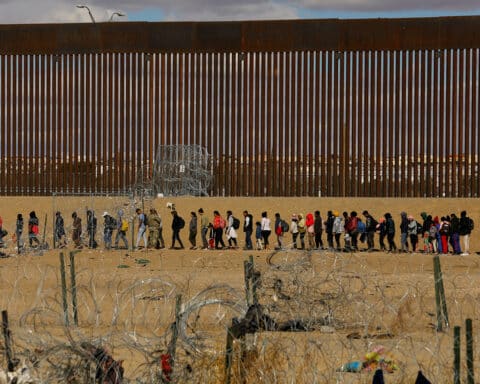The Supreme Court will open a new chapter Dec. 5 in the ongoing struggle between conscience rights and LGBTQ interests. The justices will hear oral arguments that day in the case of a Colorado website designer who won’t design websites that celebrate same-sex marriages because doing that would violate her religious faith.
As matters stand, says Lorie Smith in her brief to the court, the state is using public accommodation law to compel people like her to “speak government-sponsored messages, stop speaking their own preferred message, or leave the market in which they hope to participate.”
Among other things, Smith’s case (303 Creative LLC v. Elenis) is a fresh opportunity for the Supreme Court to declare its position on religious rights in the face of criticism from the secularist left. Recent rulings by the court siding with religious groups and individuals in various disputes have brought a sustained and sometimes abusive assault on its conservative justices for supposedly being too friendly to religion.
In effect, the new case picks up where the Supreme Court left off four years ago in the Masterpiece Cakeshop case in which Colorado baker Jack Phillips similarly refused on religious grounds to bake a cake for a same-sex couple. Although the court ruled for Phillips, it did so on narrow grounds — evidence that some members of the state civil rights commission were biased against his religion — without addressing the constitutional questions of free speech and religious liberty raised by the case.
Interest in the new case is running high, as reflected in the stream of friend-of-the-court briefs submitted by individuals and groups on both sides of the dispute. Supporting Smith in a joint brief are the U.S. Conference of Catholic Bishops, the Colorado Catholic Conference, the general council of the Assemblies of God, the general conference of Seventh-Day Adventists, the Billy Graham Evangelistic Association and an evangelical Christian charity called Samaritan’s Purse.
Pointing to “profound disagreement” among federal and state courts in recent religious liberty cases, the groups say the uncertainty thus created has been “punishing” to religious interests. They call on the Supreme Court to extend protection to individuals and groups against being “compelled to ascribe to and utter the government’s preferred message.”
“Our culture and our politics have become increasingly polarized, leading to regulations and policies that would force minority voices to choose between violating their conscience or being pushed from the public square,” the groups add.
The new case comes to the Supreme Court on appeal from a 2-1 decision against Smith by the U.S. Court of Appeals for the 10th Circuit. Although same-sex couples could find other website designers to design sites for them, the two-member majority said, they could not get services with “the same quality and nature” as a Smith-designed site. In his dissent, Chief Judge Timothy Tymkovich called his colleagues’ ruling “staggering” in its scope.
Smith, a practicing Christian who is represented before the Supreme Court by the Christian legal advocacy group Alliance Defending Freedom, wants to add weddings to the list of occasions for which she designs websites through her firm, 303 Creative LLC. She points out that she does not object simply to providing design services to people with a same-sex attraction and is prepared to refer same-sex couples seeking a website to celebrate their weddings to another designer willing to do the job. But she draws the line there for herself because same-sex marriage conflicts with her religious beliefs.
Declaring that the state under the guise of civil rights is, in effect, asking the Supreme Court to “compel speech and upend settled First Amendment law,” Smith’s brief argues that artists “do not lose their free-speech rights when creating speech on commission.”
Quoting an earlier Supreme Court case, the brief says, “Rather than have officials pick ideological winners and losers, the Constitution commits the government ‘to preserve an uninhibited marketplace of ideas in which truth will ultimately prevail.'”
Colorado is represented in the case by state Attorney General Philip J. Weiser and several of his colleagues. They argue that the dispute is not “ripe” for consideration now inasmuch as Smith has not shown a “credible threat” that the state’s anti-discrimination act will be enforced against her. Also, they say, Colorado has “enhanced free exercise protections” since the Masterpiece Cakeshop decision in 2018.
When agreeing last February to take up the 303 Creative LLC case, the Supreme Court specified that it would consider only Smith’s claim that her First Amendment free speech right was at risk of being violated. It excluded from its consideration her further claim that her First Amendment right of religious free exercise was imperiled, as well as her request that the court reverse its decision in a 1990 case called Employment Division v. Smith.
The Smith decision has been a target of criticism by religious liberty activists from the start. The Supreme Court there held — in an opinion written by the late Justice Antonin Scalia — that religiously neutral laws do not violate the Constitution’s guarantee of free exercise if they apply equally to everyone, religious and nonreligious alike.
Religious liberty advocacy groups contend that this is a misreading of the Constitution because the First Amendment’s free exercise clause itself establishes a special zone of heightened protection for freedom of religion.
In saying, in effect, that it does not want to reconsider the pros and cons of the Smith decision in the context of 303 Creative LLC, the Supreme Court was not ruling out the possibility of someday reconsidering Smith but only saying it doesn’t care to do that now. It seems safe to think the religious liberty activists who follow these issues in the courts are already busy looking for a new case allowing them to approach the court at a point in the future arguing that it’s time for it to get involved.
Russell Shaw is a contributing editor for Our Sunday Visitor.

